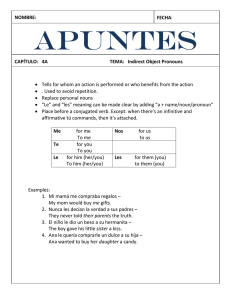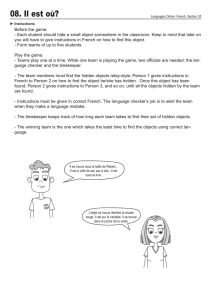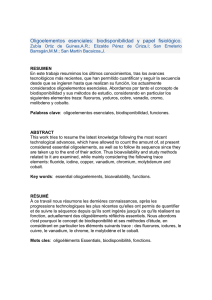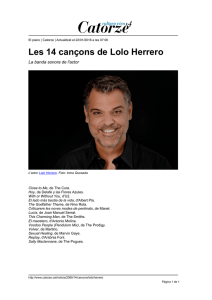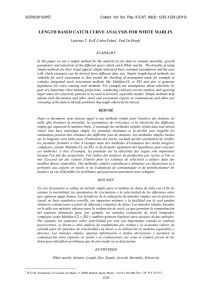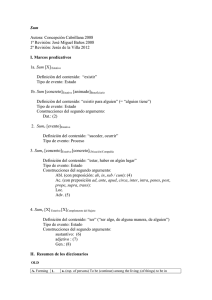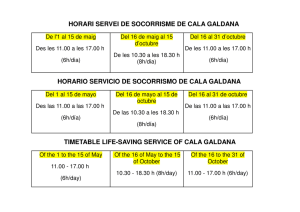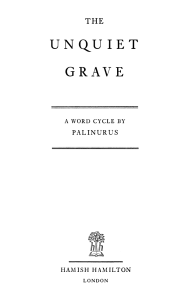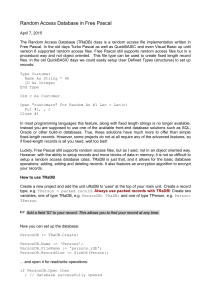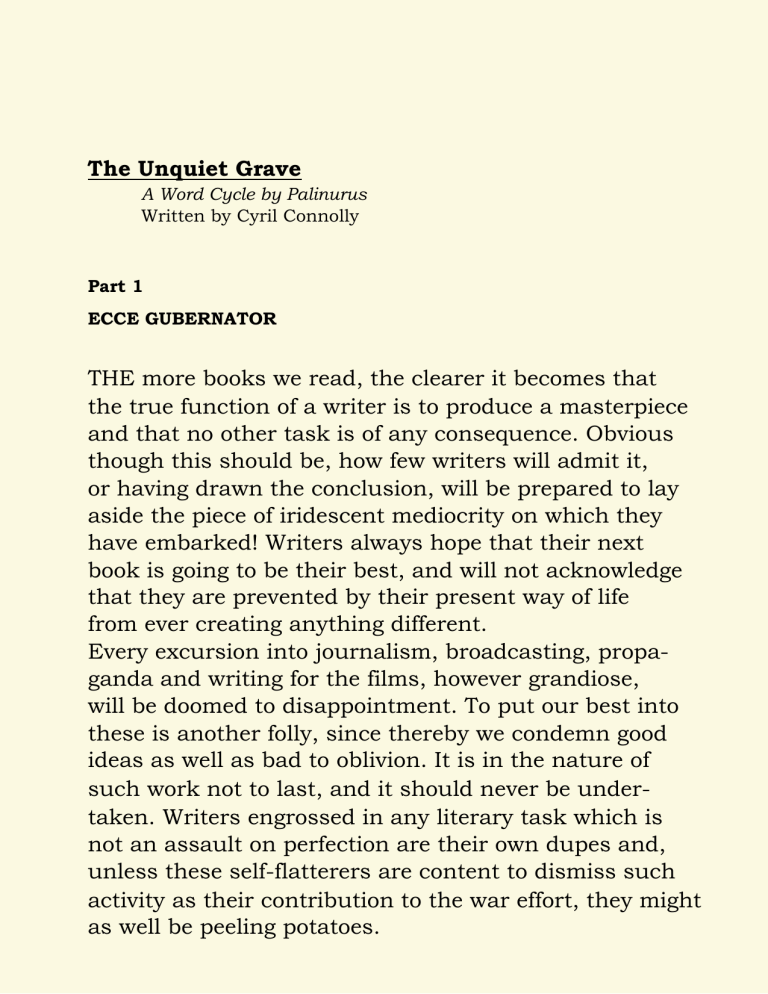
The Unquiet Grave
A Word Cycle by Palinurus
Written by Cyril Connolly
Part 1
ECCE GUBERNATOR
THE more books we read, the clearer it becomes that
the true function of a writer is to produce a masterpiece
and that no other task is of any consequence. Obvious
though this should be, how few writers will admit it,
or having drawn the conclusion, will be prepared to lay
aside the piece of iridescent mediocrity on which they
have embarked! Writers always hope that their next
book is going to be their best, and will not acknowledge
that they are prevented by their present way of life
from ever creating anything different.
Every excursion into journalism, broadcasting, propaganda and writing for the films, however grandiose,
will be doomed to disappointment. To put our best into
these is another folly, since thereby we condemn good
ideas as well as bad to oblivion. It is in the nature of
such work not to last, and it should never be undertaken. Writers engrossed in any literary task which is
not an assault on perfection are their own dupes and,
unless these self-flatterers are content to dismiss such
activity as their contribution to the war effort, they might
as well be peeling potatoes.
'Les plus forts y ont péri. L'art est un luxe; il veut
des mains blanches et calmes. On fait d'abord une petite
concession, puis deux, puis vingt. On s'illusionne sur sa
moralité pendant longtemps. Puis on s'en fout compètement et puis on devient imbécile.'— -FLAUBERT.
Poets arguing about wartime poetry: jackals snarling
over a dried-up well.
How many books did Renoir write on how to paint ?
To fashion a golden book, to weave a suit that will last
some hundred years, it is necessary to feel, to think, and
to write. These three activities must be co-ordinated.
'Bien écrire c'est a la fois bien sentir, bien penser et
bien dire.'—BUFFON.
We cannot think if we have no time to read, nor feel
if we are emotionally exhausted, nor out of cheap material
create what is permanent. We cannot co-ordinate what
is not there.
What is a masterpiece ? Let me name a few. The Odes
and Epistles of Horace, the Eclogues and Georgics of
Virgil, the Testament of Villon, the Essays of Montaigne,
the Fables of La Fontaine, the Maxims of La Rochefoucauld and La Bruyére, the Fleurs du Mal and Intimate Journals of Baudelaire, the Poems of Pope and
Leopardi, the Illuminations of Rimbaud, and Byron's
Don Juan.
Such a catalogue reveals the maker. What is common
in thought to these twelve writers? Love of life and
nature; lack of belief in the idea of progress; interest in,
mingled with contempt for humanity. All are what
Palinurus has been called by a critic: ' Earthbound'!
Yet all are more adult and less romantic than he. These
masterpieces then, (mostly high peaks of the secondary
range), reflect either what he would like to be, or a self
to which he is afraid of confessing. He would like to
have written Les Fleurs du Mal or the Saison en Enfer
without being Rimbaud or Baudelaire, that is without
undergoing their mental suffering and without being
diseased and poor.
In feeling, these works of art contain the maximum
of emotion compatible with a classical sense of form.
Observe how they are written; many are short and
compressed, fruit of reflective and contemplative
natures, prose or poetry of great formal beauty and
economy of phrase. There are no novels, plays or biographies included in the list and the poetry is of a kind
which speculates about life. They have been chosen by
one who most values the art which is distilled and crystallized out of a lucid, curious and passionate imagination.
All these writers enjoy something in common, 'jusqu'au
sombre plaisir d'un coeur mélancolique': a sense of
perfection and a faith in human dignity, combined with
a tragic apprehending of our mortal situation, and our
nearness to the Abyss.
We can deduce then that the compiler should set
himself to write after these models. However unfavourable the conditions for the birth of a classic, he can
at least attempt to work at the same level of intention
as the Sacred Twelve. Spiritualize the Earthbound,
Palinurus, and don't aim too high!
What follow are the doubts and reflections of a year, a
word-cycle in three or four rhythms; art, love, nature
and religion: an experiment in self-dismantling, a search
for the obstruction which is blocking the flow from the
well and whereby the name of Palinurus is becoming
an archetype of frustration.
As we grow older we discover that what seemed at the
time an absorbing interest or preoccupation which we
had taken up and thrown over, was in reality an appetite
or passion which had swept over us and passed on,
until at last we come to see that our life has no more
continuity than a pool in the rocks filled by the tide
with foam and flotsam and then emptied. Nothing
remains of the self but the sediment which this flux
deposits; ambergris valuable only to those who know
its use.
' Dry again ?' said the Crab to the Rock-Pool. ' So would
you be/ replied the Rock-Pool, 'if you had to satisfy,
twice a day, the insatiable sea.'
As we grow older, in fact, we discover that the lives
of most human beings are worthless except in so far as
they contribute to the enrichment and emancipation of
the spirit. However attractive in our youth the animal
graces may seem, if by our maturity they have not led
us to emend one character in the corrupt text of existence, then our time has been wasted. No one over
thirty-five is worth meeting who has not something to
teach us,—something more than we could learn by
ourselves, from a book.
LOVE AND ANXIETY
A lover's warning:
' The sixth age is ascribed to Jupiter, in which we begin
to take account of our time, to judge of ourselves, and
grow to the perfection of our understanding; the last and
seventh age to Saturn, wherein our days are sad and
overcast and in which we find by dear and lamentable
experience, and by the loss which can never be repaired,
that of all our vain passions and affections past, the
sorrow only abideth.'—SIR WALTER RALEIGH.
There is no pain equal to that which two lovers can
inflict on one another. This should be made clear to
all who contemplate such a union. The avoidance of
this pain is the beginning of wisdom, for it is strong
enough to contaminate the rest of our lives: and since
it can be minimized by obeying a few simple rules, rules
which approximate to Christian marriage, they provide,
even to the unbeliever, its de facto justification. It is when
we begin to hurt those whom we love that the guilt
with which we are born becomes intolerable, and since
all those whom we love intensely and continuously grow
part of us, and as we hate ourselves in them, so we
torture ourselves and them together.
The object of Loving is a release from Love. We achieve
this through a series of unfortunate love affairs or, without a death-rattle, through one that is happy.
Complete physical union between two people is the
rarest sensation which life can provide—and yet not
quite real, for it stops when the telephone rings. Such
a passion can be maintained at full strength only by
the admixture of more unhappiness (jealousy, rows,
renunciation) or more and more artificiality (alcohol
and other technical illusions). Who escapes this heaven
may never have lived, who exists for it alone is soon
extinguished.
We pay for vice by the knowledge that we are wicked:
we pay for pleasure when we find out, too late, that we
are disappearing.
'Pleasure seizes the whole man who addicts himself to
it, and will not give him leisure for any good office in
life which contradicts the gaiety of the present hour.
You may indeed observe in people of pleasure a certain
complacency and absence of all severity, which the
habit of a loose and unconcerned life gives them; but
tell the man of pleasure your secret wants, cares, or
sorrows, and you will find that he has given up the
delicacy of his passions to the craving of his appetites.'—
STEELE.
Beneath a mask of selfish tranquility nothing exists
except bitterness and boredom. I am one of those whom
suffering has made empty and frivolous: each night in
my dreams I pull the scab off a wound; each day,
vacuous and habit-ridden, I help it re-form.
When I contemplate the accumulation of guilt and
remorse which, like a garbage-can, I carry through life,
and which is fed not only by the lightest action but by
the most harmless pleasure, I feel Man to be of all
living things the most biologically incompetent and illorganized. Why has he acquired a seventy-years'
life-span only to poison it incurably by the mere being
of himself? Why has he thrown Conscience, like a dead
rat, to putrefy in the well ?
It is no answer to say that we are meant to rid ourselves
of the self: religions like Christianity and Buddhism are
desperate stratagems of failure, the failure of men to be
men. As escapes from the problem, as nights from guilt,
they may be welcome, but they cannot turn out to be
the revelation of our destiny. What should we think
of dogs' monasteries, hermit cats, vegetarian tigers?
Of birds who tore off their wings or bulls weeping with
remorse ? Surely it is in our nature to realize ourselves,
yet there remains the deadly flaw by which we feel
most guilty when we are most confidently human and
are most to be pitied when most successful. Is this
because Christianity is true ? Or is it an ungrained effect
of propaganda for the under-dog? When did the ego
begin to stink? Those of us who were brought up as
Christians and have lost our faith have retained the
sense of sin without the saving belief in redemption.
This poisons our thought and so paralyses us in action.
Communism is the new religion which denies original
sin, though seldom do we meet a real Communist who
seems either complete or happy. And yet Original Sin,
what rubbish! The Expulsion from Eden is an act of
vindictive womanish spite; the Fall of Man, as recounted
in the Bible; comes nearer to the Fall of God.
When I consider what I believe, which I can do only
by proceeding from what I do not, I seem in a minority
of one,—and yet I know that there are thousands like
me: Liberals without a belief in progress, Democrats
who despise their fellow-men, Pagans who must live
by Christian morals, Intellectuals who cannot find the
intellect sufficient,—unsatisfied Materialists, we are as
common as clay.
But there can be no going back to Christianity nor can
I inhabit an edifice of truth which seems built upon a
base of falsehood. The contradictions will out; hence
the terrible record of the Church, which 'brings not
peace, but a sword*—her persecutions, her cupidity,
her hypocrisy, her reaction. These are inherent in her
nature as a jealous, worldly, and dogmatic body; and
because of these the Church; whenever strong enough
to do so, has always belied her spiritual claims.
How privileged are Mahommedans! Small wonder there
are more of them than of any other religion and that
they are still making converts; for their creed is extroverted,—the more fanatical they become, the faster
they relieve themselves by killing other people. They
observe a dignified ritual, a congenial marriage code and
appear to be without the sense of guilt.
In my religion all believers would stop work at sundown
and have a drink together 'pour chasser la honte du
jour.' This would be taken in remembrance of the first
sunset when man must have thought the oncoming
night would prove eternal, and in honour of the gift of
wine to Noah as a relief from the abysmal boredom of
the brave new world after the flood. Hence the institution
of my 'Sundowner' with which all believers, whether
acquainted or not, would render holy that moment of
nostalgia and evening apprehension. Brevis hie est
fructus homullis. In my religion there would be no
exclusive doctrine; all would be love, poetry and doubt.
Life would be sacred, because it is all we have and
death, our common denominator, the fountain of consideration. The Cycle of the Seasons would be rhythmically celebrated together with the Seven Ages of
Man, his Identity with all living things, his glorious
Reason, and his sacred Instinctual Drives.
Ah, see how on lonely airfield and hill petrol-station
the images of Freud and Frazer are wreathed in flowers!
From Wabash to Humber the girls are launching their
fast-perishing gardens of Adonis far out on to the
stream; with sacred rumbas and boogie-woogies the Id
is being honoured in all the Hangars, the Priestess
intones long passages of the liturgy to which it is most
partial; boastful genealogies and anecdotes of the
Pornocrats, voodoo incantations, oceans of gibberish from
Maldoror and Finnegans Wake! In a rapture of kisses
the river-gods return, till Pan and Priapus in their red
bowler-hats give way to Human Reason, Human Reason
to Divine Love, 'Caelestis Venus', and Divine Love to
the gyrations of the Planets through the bright selfless
wastes of the Aether.
'The ideal, cheerful, sensuous, pagan life is not sick or
sorry. No; yet its natural end is the sort of life which
Pompeii and Herculaneum bring so vividly before us,—
a life which by no means in itself suggests the thought of
horror and misery, which even, in many ways, gratifies
the senses and the understanding; but by the very
intensity and unremittingness of its appeal to the senses
and the understanding, by its stimulating a single side
of us too absolutely, ends by fatiguing and revolting us;
ends by leaving us with a sense of confinement, of
oppression,—with a desire for an utter change, for clouds,
storms, effusion and relief.'—MATTHEW ARNOLD.
This argument is often used against Paganism. It is
no more true to say that Pompeii and Herculaneum
express what is finest in paganism, than that Blackpool
and Juan-les-Pins represent the best in Christianity. A
life based on reason will always require to be balanced
by an occasional bout of violent and irrational emotion,
for the instinctual drives must be satisfied. In the past
this gratification was provided by the mystery religions,
somewhat grossly by the cults of the Great Mother,
more spiritually by the Eleusinian and Orphic mysteries.
Where Apollo reigns, Dionysus will follow.
Ancestor, my old incarnation, 0 Palinurus Vulgaris, the
Venetian red crawfish, langouste, or rock-lobster, whether
feeding on the spumy Mauretanian Banks, or undulating
—southward to Teneriffe, northward to Scilly—in the
systole and diastole of the wave: free me from guilt and
fear, free me from guilt and fear, dapple-plated scavenger
of the resounding sea!
My previous incarnations: a melon, a lobster, a lemur, a
bottle of wine, Aristippus.
Periods when I lived: the Augustan age in Rome,
in Paris and London from 1660 to 1740, and lastly
from 1770 to 1850.
My friends in the first were Horace, Tibullus, Petronius
and Virgil; in the second: Rochester, Congreve, La
Fontaine, La Bruyère, La Rochefoucauld, Saint Evremond, Dryden, Halifax, Pope, Swift, Racine, Hume,
Voltaire; while in the last avatar I frequented Walpole
and Gibbon; Byron, Fox, Beckford, and Stendhal,
Tennyson. Baudelaire, Nerval and Flaubert.—Afternoons at Holland House, dinners chez Magny.
There are some fruits which awaken in me feelings
deeper than appetite. When I contemplate the musky
golden orb of the sugar-melon or the green and brown
seaweed markings of the tiger cantaloup, the scales of
the pine-apple or the texture of figs and nectarines, the
disposition of oranges and lemons on the tree or the
feign-death coils of the old vine-serpent, I swell in
unity with them, I ripen with the ripe sugar-cane, the
banana in flower, I graft myself on certain trees,—the
stone or umbrella-pine, the sun-loving Norfolk Island
pine, the leaning bamboo, the squat carob, the rusty
cork-oak and the plane. For the hundredth time 1
remark with wonder how the leaves and sprays of the
plane-tree forge the pendulous signature of the vine!
'Evincet ulmos platanus coelebs.' The bachelor plane
shall drive out the elms. . . .
My desire is for wisdom, not for the exercise of
the will. 'The will is the strong blind man who
carries on his shoulders the lame man who can see.'—
SCHOPENHAUER.
For me success in life means survival. I believe that a
ripe old age is nature's reward to those who have grasped
her secret. I do not wish to die young or mad. The true
pattern of existence can best be studied in a long life
like Goethe's,—a life of reason interrupted at intervals
by emotional outbursts, displacements, passions, follies.
In youth the life of reason is not in itself sufficient;
afterwards the life of emotion, except for short periods,
becomes unbearable.
Sometimes at night I get a feeling of claustrophobia; of being smothered by my own personality, of
choking through being in the world. During these
moments the universe seems a prison wherein I lie
fettered by the chains of my senses and blinded through
being myself.
It is like being pinned underneath the hull of a capsized boat, yet being afraid to dive deeper and get clear.
In those moments it seems that there must be a way
out, and that through sloughing off the personality
alone can it be taken.
We love but once, for once only are we perfectly equipped
for loving: we may appear to ourselves to be as much
in love at other times—so will a day in early September,
though it be six hours shorter, seem as hot as one in
June. And on how that first true love-affair will shape
depends the pattern of our lives.
Two fears alternate in marriage, of loneliness and of
bondage. The dread of loneliness being keener than the
fear of bondage, we get married. For one person
who fears being thus tied there are four who dread
being set free. Yet the love of liberty is a noble passion
and one to which most married people secretly aspire,—
in moments when they are not neurotically dependent—
but by then it is too late; the ox does not become a bull,
nor the hen a falcon.
The fear of loneliness can be overcome, for it springs
from weakness; human beings are intended to be free,
and to be free is to be lonely, but the fear of bondage is
the apprehension of a real danger, and so I find it all the
more pathetic to watch young men and beautiful girls
taking refuge in marriage from an imaginary danger
'a sad loss to their friends and a sore trial to each other'
First love is the one most worth having, yet the best
marriage is often the second, for we should marry only
when the desire for freedom be spent; not till then does
a man know whether he is the kind who can settle down
the most tragic breakings-up are of those couples
who have married young and who have enjoyed seven
years of happiness, after which the banked fires of
passion and independence explode—and without knowing why. for they still love each other, they set about
accomplishing their common destruction.
When a love-affair is broken off, the heaviest blow is
to the vanity of the one who is left. It is therefore
reasonable to assume that, when a love-affair is beginning, the greatest source of satisfaction is also to the
vanity. The first signs of a mutual attraction will induce
even the inconsolable to live in the present.
Cracking tawny nuts, looking out at the tawny planes
with their dappled festoons of yellow and green, reading
the Tao Tê Ching by a log fire: such is the wisdom of
October: autumn bliss; the equinoctial study of religions.
Jesus was a petulant man: his malediction on the barren
fig tree was sheer spite, his attitude towards the Pharisees
one of paranoiac wrath. He speaks of them as
Hitler of the men who made the League of Nations.
Those parables which all end 'There shall be wailing
and gnashing of teeth'—what a tone for a Redeemer l
A hnd such incidents as the violence used on the man
without a wedding garment or the praise of usury in the
parable of the talents to be understandable only as
outbursts of arrogance and bad temper. Though an
inspired genius as a mystic and an ethical reformer
Jesus is also completely a Jew; he does not wish to
break away from the Jewish framework of the Old
Testament, the Law and the Prophets, but to enrich
their ethical content; consequently he imitates the
intolerance of the Pharisees whom he condemns ('0
ye generation of vipers') and maintains the avenging
role of God the Father which he claims to have superseded.
Impression of Jesus Christ after re-reading the Gospels:
He thought he was the son of God, he disliked his
parents, was a prig, a high-spirited and serious young
man (where was he, what was he doing, between the
ages of twelve and twenty-nine?). He felt an especial
hatred for the Pharisees, the family, his hometown and
adultery, and he may have been illegitimate (Ben Pandere)*;
(* The Jewish tradition was that he was the son of a Roman
Centurion, Pantheras, the Panther. Hence his aloofness to his
'father' and 'brethren', his ambivalent attitude to his mother
and to adultery. (His definition of adultery is very sharp, and he
sets 'Thou shalt not commit adultery' as the only commandment beside 'Thou shalt love thy neighbour as thyself. The
question about the woman taken in adultery may have been
put to him as a trap by those who believed this story.) I have
heard a friend say that the German scholar Von Domaszewski
claimed to have found on our Roman Wall the gravestone of
Pantheras which showed 'that his legion had been in Judaea
about 4 B.C. The Christians maintained that 'Pantherou', son
of the Panther, was a corruption of ' Parthenou', of the Virgin.
There is a strange poem by Hardy on this theme.)
he had a macabre sense of humour; was
overwhelmingly grateful to those who believed in him
('Thou art Peter'), and extremely close to his elder
cousin John, but though moulding himself on him, he
was less ascetic. He was fond of wine and very partial
to grapes and figs. More civilized than his cousin, he
was yet deeply affected by his end, which warned him of
what would be his own if he persisted. The death of
John and the revelation of Messiahship at Caesarea
Philippi completely changed him: impatient, ironical
and short-tempered, he was a true faith-healer, inspired
by his sublime belief in himself and tragically betrayed
by it. I can't believe in his divinity, yet it is impossible
not to admire his greatness, his majesty, his fatalistic
intuition and that mixture of practical wisdom with
sublime vision which alone can save our world. His
faith carried him through to the end, then wavered.
Was there a secret understanding with John the Baptist?
John the Baptist, I feel, holds many clues. About the
miracles I suspend judgement. But not about the sermon
on the Mount. Those loving dazzling teasing-tender
promises are like the lifting of the human horror, the
bursting of a great dam. How different he is from
Buddha!
Buddha though a philosopher-king is too oriental.
His courage in living to a great age, among ageing
disciples, confers a pedagogic monotony on his teaching.
Besides, we can never absorb his titles; they are illaccommodated to the Western ear. The Chinese wisdom
alone has a natural affinity for the West, the Chinese
are always practical. And Tao—a religion without
words, without a saviour, without a doubt a God or a
future life, whose truth is in a hoof-mark filled with
water—what more dare we ask?*
(* Taoism (pronounced Dowism) is a Monist reconciliation of
the human being to the inhuman, inactive harmony of the
universe. In return for such an adaption the Taoist resolves his
conflict, and gains a sensation of power and tranquillity which
he is loth to disturb. His quietism is akin to that of Zeno,
Epicurus, Molinos and St. John of the Cross, but dangerously exposed to the corruption of laisser-aller.)
'Repose, tranquillity, stillness, inaction—these were the
levels of the universe, the ultimate perfection of Tao.'—
CHUANG TZU.
Forty,—sombre anniversary to the hedonist,—in seekers
after truth like Buddha, Mahomet, Mencius, St. Ignatius,
the turning-point of their lives.
The secret of happiness (and therefore of success) is
to be in harmony with existence, to be always calm,
always lucid, always willing, *to be joined to the universe
without being more conscious of it than an idiot', to let
each wave of life wash us a little farther up the shore.
But the secret of art ? There have been so many Infernos
and so few Paradises in European art that the Infernos
would seem our true climate. Yet those who have survived Satanism, war or passion have cared only for
Paradise. In that sense Religion is the sequel to art
and the sequel to love, as Paradise Regained follows
half-heartedly after Paradise Lost.
TWO MODERN TAOISTS
' I have never seen a man who had such creative quiet.
It radiated from him as from the sun. His face was that
of a man who knows about day and night, sky and sea
and air. He did not speak about these things. He had no
tongue to tell of them . . .'
‘I have often seen Klee's window from the street,
with his pale oval face, like a large egg, and his open eyes
pressed to the window pane.'—J. ADLER.
'The only thing in all my experience I cling to is my
coolness and leisurely exhilarated contemplation. If I
could influence you to achieve that je t’aurais rendu un
peu de service. J'y tiens TELLEMENT—si tu savais
comme j'y tiens. Let this advice be my perpetual and
most solemn legacy to you.'—w. SICKERT (to Nina
Hamnett).
'The mind of the sage in repose becomes the mirror
of the universe, the speculum of all creation.'—
CHUANG TZU.
Whether or not he produce anything, this contemplation is the hall-mark of the artist. It is his gelatine, his
queen-bee jelly, the compost round his roots: the
violent are drawn to such a man by the violence of his
serenity.
'Points upon which the Yellow Emperor doubted, how
can Confucius know ?'*
*(A proverb which the Taoists coined to discredit their
bustling rival. The Yellow Emperor or Ancestor, revered by
the Taoists, flourished circa 2700-2600 B.C. ' The close of his
long reign was made glorious by the appearance of the Phoenix
and the mysterious animal known as the Chi Lin, in token of
his wise and humane administration.'—GILES: Chinese Biographical Dictionary.)
Palinurus says: 'It is better to be the lichen on a rock
than the President's carnation. Only by avoiding the
beginning of things can we escape their ending.' Thus
every friendship closes in the quarrel which is a conflict
of wills, and every love-affair must reach a point where
it will attain marriage, and be changed, or decline it,
and wither.
The friendships which last are those wherein each
friend respects the others' dignity to the point of not
wanting anything from him. Therefore a man with
a will to power can have no friends. He is like a boy with
a chopper. He tries it on flowers, then on sticks, then
on furniture, and at last he breaks it on a stone.
There cannot be a personal God without a pessimistic
religion. A personal God is a disappointing God; and
Job, Omar Khayyam, Euripides, Palladas, Voltaire and
Professor Housman will denounce him. With Buddhism,
Taoism, Quietism, and the God of Spinoza there can be
no disappointment, because there is no Appointment.
Yet no one can achieve Serenity until the glare of
passion is past the meridian. There is no certain way
of preserving chastity against the will of the body.
Lao-Tsu succeeded. But then he was eighty and a
Librarian. So he inveighed against books and booklearning, and left but one, shorter than the shortest
gospel—a Kaleidoscope of the Void.
Action is the true end of Western religion, contemplation of Eastern; therefore the West is in need of
Buddhism (or Taoism or Yoga) and the East of Communism (or muscular Christianity)—and this is just
what both are getting. Undergoing the attraction of
opposites, we translate the Tao Te Ching and the
Bhagavad-Gita, they learn the Communist Manifesto.
The moment a writer puts his pen to paper he is of his
time; the moment he becomes of his time he ceases to
appeal to other periods and so will be forgotten. He
who would write a book that would last for ever must
learn to use invisible ink. Yet if an author is of his age,
parallel situations will recur which he may return to
haunt. He will obsess the minds of living writers,
prevent them from sleeping, crowd them out like the
Horia and snatch the bread from their mouths.
Our minds do not come of age until we discover that
the great writers of the past whom we patronize, dead
though they be, are none the less far more intelligent than
ourselves—Proust, James, Voltaire, Donne, Lucretius
—how we would have bored them!
Fallen leaves lying on the grass in the November sun
bring more happiness than daffodils. Spring is a call
to action, hence to disillusion, therefore is April called
'the cruellest month'. Autumn is the mind's true Spring;
what is there we have, 'quidquid promiserat annus'
and it is more than we expected.
WOMEN
There is no fury like an ex-wife searching for a new lover.
When we see a woman chewing the cud meekly beside
her second husband, it is hard to imagine how brutally,
implacably and pettily she got rid of the others. There
are two great moments in a woman's life: when first
she finds herself to be deeply in love with her man and
when she leaves him. Leaving him enables her to be
both sadist and masochist, to be stony when he implores
her to stay and to weep because she has decided to go.
Women differ from men in that to break with the past
and mangle their mate in the process fulfils a dark
need. Thus a wife's woman-friends will derive an almost
equal satisfaction from her impending departure.
Together they prepare the brief against the husband
which will strip him of his friends. They love to know
the date, to fan the flames, and when the Monster is
alone to rush round and inspect him. They will hear
the clump of suit-cases a hundred streets away.
Beware of a woman with too many girl-friends, for
they will always try to destroy the conjugal WE. One
girl-friend is worse, unless afterwards we marry her.
In America every woman has her set of girl-friends;
some are cousins, the rest are gained at school. These
form a permanent committee who sit on each other's
affairs, who 'come out' together, marry and divorce
together, and who end as those groups of bustling,
heartless well-informed club-women who govern society.
Against them the Couple or Ehepaar is helpless and
Man in their eyes but a biological interlude.
In the sex-war thoughtlessness is the weapon of the
male, vindictiveness of the female. Both are reciprocally
generated, but a woman's desire for revenge outlasts all
other emotion.
'And their revenge is as the tiger's spring,
Deadly, and quick, and crushing; yet as real
Torture is theirs, what they inflict they fell.'
When every unkind word about women has been
said, we have still to admit, with Byron, that they are
nicer than men. They are more devoted, more unselfish
and more emotionally sincere. When the long fuse of
cruelty, deceit and revenge is set alight, it is male
thoughtlessness which has fired it.
A woman who will not feign submission can never
make a man happy and so never be happy herself.
There has never been a happy suffragette. In a perfect
union the man and woman are like a strung bow. Who
is to say whether the string bend the bow, or the bow
tighten the string? Yet male bow and female string are
in harmony with each other and an arrow can be fitted.
Unstrung, the bow hangs aimless; the cord flaps idly.
A man who has nothing to do with women is incomplete.
A puritan is incomplete because he excludes that half of
himself of which he is afraid and so the deeper he
imprisons himself in his fastidiousness, the more difficulty he has in finding a woman who is brave enough
to simulate the vulgarity by which he can be released.
' Sabba dukkha, sabba anatta, sabba anikka.'*
(*' Sorrow is everywhere
In man is no abiding entity
In things no abiding reality.'—BUDDHA ('a dirge that still
resounds mournfully in ten thousand monasteries').)
A stone lies in a river; a piece of wood is jammed against
it; dead leaves, drifting logs, and branches caked with
mud collect; weeds settle there, and soon birds have
made a nest and are feeding their young among the
blossoming water plants. Then the river rises and the
earth is washed way. The birds depart, the flowers
wither, the branches are dislodged and drift downward;
no trace is left of the floating island but a stone submerged
by the water;—such is our personality.
If (as Christians, Buddhists, Mystics, Yogis, Platonists,
believe), our life is vanity, the world unreal, personality
non-existent, the senses deceivers, their perceptions and
even reason and imagination false; then how tragic that
from the Flesh are such deductions always made! If
our mission in life is to evolve spiritually, then why are
we provided with bodies so refractory that in many
thousands of years we have not been able to improve
them? Not one lust of the flesh, not one single illusion,
not even our male nipples have been bred out of us;
and still our new-born babies roll about in paroxysms
of sensual cupidity and egomaniac wrath.
Three faults, which are found together and which infect
every activity: laziness, vanity, cowardice. If one is too
lazy to think, too vain to do a thing badly, too cowardly
to admit it, one will never attain wisdom. Yet it is
only the thinking which begins when habit-thinking
leaves off, which is ignited by the logic of the train of
thought, that is worth pursuing. A comfortable person
can seldom follow up an original idea any further than a
London pigeon can fly.
Complacent mental laziness is our national disease.
Today our literature is suffering from the decay of
poetry and the decline of fiction, yet never have there
been so many novelists and poets; this is because neither
will overcome the difficulties of their medium. Irresponsible poets who simulate inspiration trample down the
flower of a language as brutally as politician and journalist blunt and enfeeble with their slovenliness the
common run of words. Many war poets don't try; they
are like boys playing about on a billiard table who wonder
what the cues and pockets are for. Nor is it easier for
novelists, who can no longer develop character, situation
or plot.
Flaubert, Henry James, Proust, Joyce and Virginia
Woolf have finished off the novel. Now all will have to
be re-invented as from the beginning.
Let us reflect whether there be any living writer whose
silence we would consider a literary disaster: one who,
with three centuries more of art and history to draw
from, can sustain a comparison with, for example, Pascal.
Pascal's Pensées were written about 1660. Many of them
are modern not merely in thought, but in expression
and force; they would be of overwhelming importance
if they were now published for the first time. Such a
genius must invalidate the usual conception of human
progress. Particularly modern are his rapidity, detachment and intellectual impatience.
Resemblance. Pascal: Leopardi: Baudelaire.
WISDOM OF PASCAL 1623-1662
'Tout le malheur des hommes vient d'une seule chose,
qui est de ne savoir pas demeurer en repos, dans une
chambre.'
‘Notre nature est dans le mouvement; le repos entier
est la mort.’
Ennui: ‘Rien n'est si insupportable à l'homme que
d'être dans un plein repos, sans passions, sans affaire,
sans divertissement, sans application. Il sent alors son
néant, son insuffisance, sa dépendance, son impuissance,
son vide. Incontinent il sortira du fond de son âme
l’ennui, la noirceur, la tristesse, Ie chagrin, Ie dépit, Ie
désespoir.’
Misère: 'La seule chose qui nous console de nos misères
est Ie divertissement, et cependant c'est la plus grande de
nos misères, car c'est cela qui nous empêche principalement de songer a nous, et qui nous fait perdre
insensiblement.'
La Gloire: ' L’admiration gâte tout dès l’enfance: Oh !
que cela est bien dit! Oh! qu'il a bien fait I Qu'il est sage,
etc. . . .'
‘Les enfants de Port-Royal, auxquels on ne donne point
cet aiguillon d'envie et de gloire, tombent dans la
nonchalance.'
Pascal and Leopardi (both died aged thirty-nine), depress
and frighten one because they were ill, almost deformed,
and therefore because their deformity renders suspect
so much of their pessimism. They are the Grand
Inquisitors who break down our alibis of health and
happiness. Are they pessimistic because they are ill?
Or does their illness act as a short cut to reality—which
is intrinsically tragic?*
*( 'For aught we know to the contrary, 103 or 104
Fahrenheit might be a much more favourable temperature for
truths to germinate and sprout in, than the more ordinary
blood-heat of 97 or 98 degrees.'—WILLIAM JAMES.)
Or did their deformities encourage the herd to treat them thoughtlessly, and so
create in them a catastrophic impression of human nature ?
In many of Pascal's reflections one detects not only the
scientific accuracy, but the morbidity and peevishness;
the injustice of Proust.
How was La Rochefoucauld's health ?
Pascal's 'moi’ is Freud's 'Id’. Thus Pascal writes, 'Le
moi est haïssable ... le moi a deux qualités: il est injuste
en soi, en ce qu'il se fait centre du tout; il est incommode
aux autres, en ce qu'il les veut asservir: car chaque moi
est 1'ennemi et voudrait être le tyran de tous les autres’.
This is Freud. But though babies are born all 'Id', we
do not for that condemn the human race.
We may consider that we are born as 'Id' and that the
object of life is to sublimate the 'Id',—the 'Id' is all
greed, anger, fear, vanity and lust. Our task is to purge
it, to shed it gradually as an insect sheds its larval form.
Life is a maze in which we take the wrong turning before
we have learnt to walk.
Pascal says: 'Death should infallibly put them [the
pleasure-lovers] very soon in the horrible necessity of
being eternally unhappy . . .' We keep forgetting his
belief in Hell, because we can accept so much else that he
believes. Yet believing in Hell must distort every judgement on this life. However much a Christian may claim
that the central doctrine of the Church is the Incarnation and nothing else, he is led on inevitably to exclusive
salvation, to Heaven and Hell, to censorship and the
persecution of heresy, till he finds himself among the
brothel-owning Jesuits and cannon-blessing bishops of
the Spanish war.
Pascal (or Hemingway, Sartre, or Malraux).
'Qu'on s'imagine un nombre d'hommes dans les
chaînes, et tous condamnes & la mort, dont les uns étant
chaque jour égorgés à la vue des autres, ceux qui restent
voient leur propre condition dans celle de leurs sem-
blables, et, se regardant les uns et les autres avec douleur
et sans espérance, attendent à leur tour. C'est l'image
de la condition des hommes.'
December 12th: Revisit pale Chelsea's nook-shotten
Cythera.
Christmas Eve: Dégoûté de tout. Midwinter cafard.
La Nochebuena se viene
la Nochebuena se va
y nosotros nos iremos
y no volveremos mas.*
(*Christmas eve comes, Christmas eve goes and we too shall
pass and never more return. Old Spanish carol.)
No opinions, no ideas, no true knowledge of anything,
no ideals, no inspiration; a fat slothful, querulous,'
greedy, impotent carcass; a stump, a decaying belly
washed up on the shore.' Manes Palinuri esse placandos F
Always tired, always bored, always hurt, always hating.
Sacred names: Rue de Chanaleilles. Summer night
limes in flower; old houses, with large gardens enclosed
by high walls; silent heart of the leafy Faubourgsensation of what is lost: lost love. lost youth, lost
Pans,—remorse and folly. Aïe!
A love affair is a grafting operation. 'What has once
been joined, never forgets.' There is a moment when the
graft takes; up to then is possible without difficulty the
separation which afterwards comes only through breaking off a great hunk of oneself, the ingrown fibre of
hours, days, years.
New-year resolution: lose a stone, then all the rest will
follow. Obesity is a mental state, a disease brought on
by boredom and disappointment; greed, like the love
of comfort, is a kind of fear. The one way to get thin is
to re-establish a purpose in life.
Thus a good writer must be in training: if he is a
stone too heavy then that fourteen pounds represents
for him so much extra indulgence, so much clogging
laziness; in fact a coarsening of sensibility. There are
but two ways to be a good writer: like Homer, Shakespeare or Goethe, to accept life completely, or like
Pascal, Proust, Leopardi, Baudelaire, to refuse ever to
lose sight of its horror.
When we reflect on life we perceive that only through
solitary communion with nature can we gain an idea
of its richness and meaning. We know that in such
contemplation lies our true personality, and yet we live
in an age when we are told exactly the opposite and
asked to believe that the social and co-operative activity
of humanity is the one way through which life can be
developed. Am I an exception, a herd-outcast? There are
also solitary bees, and it is not claimed that they are
biologically inferior. A planet of contemplators, each
sunning himself before his doorstep like the masonwasp; no one would help another, and no one would
need help!
Marriage: 'An experience everyone should go through
and then live his own life' or 'living one's own life—
an experience everyone should go through and then
marry' ?
The tragedy of modern marriage is that married
couples no longer enjoy the support of society, although
marriage, difficult enough at any time, requires social
sanction. Thus, in the past, married women censured
the unmarried; the constant punished the inconstant;
society outlawed the divorced and the dwellers-in-sin!
Now it does the opposite. The State harries the human
couple and takes both man and wife for its wars, society
quests impatiently for the first suspicion of mistress or
lover, and neurotic three-in-a-bedders, lonely and
envious, make the young ménage their prey.
'In wise love each divines the high secret self of the
other, and, refusing to believe in the mere daily self,
creates a mirror where the lover or the beloved sees an
image to copy in daily life.'—YEATS.
Human life is understandable only as a state of transition
as part of an evolutionary process; we can take it to be
a transition between the animal world and some other
form which we assume to be spiritual. Anxiety and
remorse are the results of failing to advance spiritually.
For this reason they follow close on pleasure, which
is not necessarily harmful, but which, since it does not
bring advancement with it, outrages that part of us
which is concerned with growth. Such ways of passing
time as chess, bridge, drink and motoring accumulate
guilt. But what constitutes the spiritual ideal? Is it the
Nietzschean Superman or his opposite, the Buddha?
The spiritual trend of human beings would seem to be
towards pacifism, vegetarianism, contemplative mysticism, the elimination of violent emotion and even of
self-reproduction. But is it impossible to improve
animal-man so that instead of being made to renounce
his animal nature, he refines it ? Can anxiety and remorse
be avoided in that way? Imagine a cow or a pig which
rejected the body for a 'noble eight-fold way of selfenlightenment'. One would feel that the beast had made
a false calculation. If our elaborate and dominating
bodies are given us to be denied at every turn, if our
nature is always wrong and wicked, how ineffectual
we are—like fishes not meant to swim. Have the solitary,
the chaste, the ascetic who have been with us now for
six thousand years, ever been proved to be right? Has
humanity shown any sign of evolving in their direction ?
As well as Diogenes and the Stylite, there is also Aristippus and Epicurus as alternative to the Beast.*
(*The Middle Way. 'Aristippus parlant à des jeunes gens qui rougissaient de le
voir entrer chez une courtisane: " Le vice est de n'en pas sortir,
non pas d'y entrer." '—MONTAIGNE (Essais, III, v).)
And now we have a new conception: the Group
Man. Man's spiritual evolution, about which I prate,
taking the form of a leap from the poorly organized
wolf-pack and sheep-flock into an insect society, a
community in which the individual is not merely a
gregarious unit, but a cell in the body itself. Community
and individual are, in fact, indistinguishable. How will
you enjoy that, Palinurus?
A charm against the Group Man
THE MAGIC CIRCLE
Peace-aims:
(1) a yellow manor farm inside this magic
circle;
(2) a helicopter to take me to
(3) an office in London or Paris and
(4) to my cabin at Almufiyar or
Ramatuclle.
Daydream: A golden classical house, three stories high,
with ceil de boeuf attic windows looking out over water.
A magnolia Delavayi growing up the wall. a terrace for
winter, a great tree for summer and a lawn for games;
a wooded hill behind and a river below, then a sheltered
garden, indulgent to fig and nectarine, and at an angle
of the wall, a belvedere, book-lined like that of Montaigne, wizard of the magic circle, with this motto from
him: 'La liberté et l'oisiveté qui sont mes maîtresses
qualités'.
As I waddle along in thick black overcoat and dark
suit with a leather brief-case under my arm, I smile to
think how this costume officially disguises the wild and
storm-tossed figure of Palinurus; who knows that a
poet is masquerading here as a whey-faced bureaucrat?
And who should ever know ?
The secret of happiness lies in the avoidance of Angst
(anxiety, spleen, noia, fear, remorse, cafard). It is a
mistake to consider happiness as a positive state. By
removing Angst, the condition of all unhappiness, we
are then prepared to receive such blessings as may come
our way. We know very little about Angst, which may
even proceed from the birth trauma, or be a primitive
version of the sense of original sin, but we can try to
find out what makes it worse.*
* Freudians consider anxiety to arise from the repression of
anger or love. Kretschmer thinks there is an obscure somatic
relation between anxiety and sex. Theologians associate it with
the Fall, Behaviorists with undigested food in the stomach,
Kierkegaard with the vertigo that precedes sin. Buddha and
many philosophers regarded it as concurrent with Desire. Thus
Bacon quotes Epicurus: ' Use not that you may not wish, wish
not that you may not fear'.
Angst can take the form of remorse about the past,
guilt about the present, anxiety about the future. Often
it is due to our acceptance through an imperfect knowledge of ourselves of conventional habits of living. Thus
to keep someone waiting or to be kept waiting is a cause
of Angst which is out of all proportion to the minor
fault of unpunctuality. Therefore we may assume that
we keep people waiting symbolically because we do
not wish to see them and that our anxiety is due not to
being late, but lest our hostility be deteced. The chronically unpunctual should cancel all engagements for
a definite period. Similarly, anxiety at being kept
waiting is a form of jealousy, a fear that we are not liked.
Fatigue is one cause of Angst which may disappear
if the tired person is able to lie down; bad air is another,
or seeing a tube train move out as one reaches the platform.
To sit late in a restaurant (especially when one has to
pay the bill) or over a long meal after a cocktail party
is particularly conducive to Angst, which does not
affect us after snacks taken in an armchair with a book.
The business lunch is another meal from which we
would prefer to be driven away in a coffin. Certainly
a frequent cause of Angst is an awareness of the waste
of our time and ability, such as may be witnessed among
people kept waiting by a hairdresser.
Further considerations on cowardice, sloth and vanity;
vices which do small harm to other people but which
prevent one from doing any good and which poison
and enfeeble all the virtues. Sloth rots the intelligence,
cowardice destroys all power at the source, while vanity
inhibits us from facing any fact which might teach us
jomething; it dulls all other sensation.
Home Truth from La Bruyere: 'L'experience confirme
que la mollesse ou 1'indulgence pour soi et la durete
pour les autres n'est qu'un seui et meme vice'.
I see the world as a kind of Black Hole of Calcutta,
where we are all milling about in darkness and slime;
now and then the mere being in the world is enough to
cause violent claustrophobia (or is it a physical shortness
of breath which creates the sensation of claustrophobia
and therefore the image of the Black Hole ?) And then
I know that it is only by some desperate escape, like
Pascal's, that I can breathe; but cowardice and sloth
prevent me from escaping.
Who have escaped ?
'Those who know don't speak;
Those who speak don't know.'
On the American desert are horses which eat locoweed and some are driven mad by it; their vision is
affected, they take enormous leaps to cross a tuft of
grass or tumble blindly into rivers. The horses which
have become thus addicted are shunned by the rest
and will never rejoin the herd. So is it with human beings:
those who are conscious of another world, the world
of the spirit, acquire an outlook which distorts the values
of ordinary life; they are consumed by the weed of nonattachment. Curiosity is their one excess and therefore
they are recognized not by what they do but by what
they refrain from doing, like those Araphants or disciples
of Buddha who were pledged to the 'Nine Incapabilities'. Thus they do not take life, they do not compete,
they do nol boast, they do not join groups of more than
six, they do not condemn others; they are 'abandoners
of revels, mute, contemplative' who are depressed by
gossip, gaiety and equals, who wait to be telephoned to,
who neither speak in public nor keep up with their
friends nor take revenge on their enemies. Self-knowledge has taught them to abandon hate and blame and
envy in their lives until they look sadder than they are.
They seldom make positive assertions because they see,
outlined against any statement, (as a painter sees a
complementary colour), the image of its opposite.
Most psychological questionnaires are designed to
search out these moonlings and ensure their nonemployment. They divine each other by a warm indifference for they know that they are not intended to
foregather, but, like stumps of phosphorus in the
world's wood, each to give forth his misleading radiance.
The two errors: We can either have a spiritual or a
materialist view of life. If we believe in the spirit then
we make an assumption which permits a whole chain
down to a belief in fairies, witches, astrology, black
magic, ghosts, and treasure-divining; the point at which
we stop believing is dictated by our temperament or
by our mood at a given moment. Thus the early Christians believed in the miracles of false prophets, and
regarded the pagan gods as devils who had entrenched
themselves in secure positions. They were more pagan
than I am. On the other hand a completely materialist
view leads to its own excesses, such as a belief in Behaviorism, in the economic basis of art, in the social
foundation of ethics and the biological nature of psychology, in fact to the justification of expediency and
therefore ultimately to the Ends-Means fallacy of which
our civilization is perishing.
If we believe in a supernatural or superhuman intelligence creating the universe, then we end by stocking
our library with the prophecies of Nostradamus and the
calculations on the Great Pyramid. If instead we choose
to travel via Montaigne and Voltaire, then we choke
among the brimstone aridities of the Left Book Club.
It is a significant comment on the victory of science
over magic that were someone to say 'if I put this pill
in your beer it will explode,' we might believe them;
but were they to cry ' if I pronounce this spell over your
beer it will go flat,' we should remain incredulous and
Paracelsus, the Alchemists, Aleister Crowley and all
the Magi have lived in vain. Yet when I read science
I turn magical; when I study magic, scientific.
We cannot say that truth lies in the centre between
the spiritual and material conception, since life must
be one thing or the other. But can it be both ? Supposing
life were created by an act of God willing the accidental
combination of chemicals to form a cell; created in fact
by deliberate accident. Then, in the confidence of
youth when the body seems self-sufficing, it would
be natural to emphasize the materialist nature of
phenomena, and in old age, when the body begins to
betray us, to abandon our sensual outlook for a more
spiritual cosmorama,—and both times we should be
right.
Sunshine streams through the room, the dove grinds
her love-song on the roof, out in the square the grass
turns green, the earth has been cleared round the
daffodils as a stage is cleared for the dancers, and under
a rinsed blue sky the streets remember Canaletto;
London spring is on its way.
Spring, season of massacre arid offensives, of warm
days and flowing blood, of flowers and bombs. Out with
the hyacinths, on with the slaughter! Glorious weather
for tanks and land-mines!
The creative moment of a writer comes with the autumn.
The winter is the time for reading, revision, preparation
of the soil; the spring for thawing back to life; the
summer is for the open air, for satiating the body with
health and action, but from October to Christmas for
the release of mental energy, the hard crown of the year.
The duality of man is the heresy of Paul and Plato,
heresy because the concept of soul and body is bound
to imply a struggle between them which leads on the one
hand to ascetism and puritanism, on the other to excess
of materialism and sensuality. The greatness of Christ
and Buddha sprang from the abandonment of asceticism
for the Middle Path.
The spiritual life of man is the flowering of his bodily
existence: there is a physical life which remains the
perfect way of living for natural man, a life in close
contact with nature, with the sun and the passage of
the seasons, and one rich in opportunities for equinoctial
migrations and home-comings. This life has now become
artificial, out of reach of all but the rich or the obstinately free, yet until we can return to it we are unable to
appreciate the potentialities of living. (Whales, branded
in the Arctic, are found cruising in Antarctic waters;
men, ringed in childhood, are observed, seventy years
later, under the same stone.) We may compare a human
being to a fruit-tree whose purpose is its fruit, fruit
out of all proportion to the tree's value; yet, unless
the tree receives its years of leisure, its requirements
of sun and rain, the fruit will not ripen. So it is
with the spiritual virtues of man, for we have divided
man into two kinds; those whose soil is so poor or the
climate of whose lives so unsuitable that they can never
bear, or those who are forced and cramped under glass,
whose lives are so constricted by responsibility that they
become all fruit; hasty, artificial and without flavour.
We progress through an intensifying of the power
generated by the physical satisfaction of natural man,
whose two worst enemies are apathy and delirium;
the apathy which spreads outward from the mechanical
life, the delirium which results from the violent methods
we use to escape.
Happiness lies in the fulfilment of the spirit through the
body. Thus humanity has already evolved from an
animal life to one more civilized. There can be no complete return to nature, to nudism or desert-islandry:
city life is the subtlest ingredient in the human climate.
But we have gone wrong over the size of our cities and
over the kind of life we lead in them; in the past the
clods were the peasants, now the brute mass of ignorance
is urban. The village idiot walks in Leicester Square.
To live according to nature we should pass a considerable time in cities for they are the glory of human nature,
but they should never contain more than two hundred
thousand inhabitants; it is our artificial enslavement
to the large city, too sprawling to leave, too enormous
for human dignity, which is responsible for half our
sickness and misery. Slums may well be breedinggrounds of crime, but middle-class suburbs are incubators of apathy and delirium. No city should be too
large for a man to walk out of in a morning.*
*( We are not yet ripe for growing up in the streets . . . has
any good ever come out of the foul-clustering town-proletariat,
beloved of humanitarians? Nothing—never; they are only
waiting for a leader, some ' inspired idiot' to rend to pieces our
poor civilization.'—NORMAN DOUGLAS: Siren Land, 1911).
Surrealism is a typical city-delirium movement, a
violent explosion of urban claustrophobia; one cannot
imagine Surrealists except in vast cities, 'paysans de
Paris' or New York. The nihilism of Celine and Miller
is another by-product, and so are those mass-movers,
Marx with his carbuncles, Hitler with his Beer-Hall.
The English masses are lovable: they are kind, decent,
tolerant, practical and not stupid. The tragedy is that
there are too many of them, and that they are aimless,
having outgrown the servile functions for which they
were encouraged to multiply. One day these huge
crowds will have to seize power because there will be
nothing else for them to do, and yet they neither demand
power nor are ready to make use of it; they will learn
only to be bored in a new way. Sooner or later the
population of England will turn Communist, and then
take over. Some form of State Socialism is the only
effective religion for the working class; its coming is
therefore as inevitable as was that of Christianity. The
Liberal Die-hard then grows to occupy historically
the same position as the 'good Pagan': he is doomed
to extinction.
While we re-live the horrors of the Dark Ages, of absolute
States and ideological wars, the old platitudes of
liberalism loom up in all their glory, familiar streets
as we reel home furious in the dawn.
Wisdom of de Quincey
de Quincey: decadent English essayist who, at the age
of seventy-five, was carried off by half a century of
opium-eating.
'Marriage had corrupted itself through the facility
of divorce and through the consequences of that facility
(viz. levity in choosing and fickleness in adhering to
the choice) into so exquisite a traffic of selfishness that
it could not yield so much as a phantom model of
sanctity.'
'By the law I came to know sin.'
On the first time he took opium in 1804: ' It was Sunday
afternoon, wet and cheerless; and a duller spectacle
this earth of ours has not to show than a rainy Sunday
in London.'
The mystery of drugs: How did savages all over the
world, in every climate, discover in frozen tundras or
remote jungles the one plant, indistinguishable from so
many others of the same species, which could, by a
most elaborate process, bring them fantasies, intoxication, and freedom from care? How unless by help
from the plants themselves? Opium-smokers in the
East become surrounded by cats, dogs, birds and even
spiders, who are attracted by the smell. The craving
for the drug proceeds from the brain-cells which revolt
and overrule the will. The Siberian tribes who eat
Agaric say, ' The Agaric orders me to do this or that ‘—
the Hashish chewers experience a like sensation. Horses
and cattle which become 'indigo eaters' continue to
gorge till they drop dead. Though one of the rarest
and most obscure drugs, Peoti gave its name to a range
of uninhabited mountains where it is found.
The Greeks and Romans looked on alcohol and opium
as lovely twin reconcilers to living and dying presented
to man by Dionysus and Morpheus,—God-given
because of their extraordinary sympathy to us and
because of the mystery attending their discovery. If
man be part of nature, then his parasites may well
understand him better than he knows.
Since there are flowers whose fertilization is impossible
except by means of an insect, flowers which eat insects
and therefore understand them, since so low and unconscious an order has these correspondences with the
one above, may there not be animals and birds who
make use of man and study his habits and if they do,
why not insects and vegetables? What grape, to keep
its place in the sun, taught our ancestors to make wine ?
Everything is a dangerous drug to me except reality,
which is unendurable. Happiness is in the imagination.
What we perform is always inferior to what we imagine;
yet day-dreaming brings guilt; there is no happiness
except through freedom from Angst and only creative
work, communion with nature and helping others are
Anxiety-free.
Fraternity is the State's bribe to the individual; it is
the one virtue which can bring courage to members
of a materialist society. All State propaganda exalts
comradeship for it is this gregarious herd-sense and
herd-smell which keep people from thinking and so
reconcile them to the destruction of their private
lives. A problem for government writers or for the
war artists in their war cemeteries: how to convert
Fraternity into an aesthetic emotion ?
Subversive thought for the year: 'Every man is to be
respected as an absolute end in himself; and it is a
crime against the dignity that belongs to him to use him
as a mere means to some external purpose.'—KANT.
‘ If I had to choose between betraying my country and
betraying my friend, I hope I should have the guts
to betray my country.' This statement by Mr. E. M.
Forster reminds us how far we have wandered from
the ancient conception of friendship, of treating a
kindred soul as an end not a means.’ The Chinese poet
recommends himself as a friend, the Western poet as
a lover,' writes Arthur Waley; but the Western prose-
writer also used to recommend himself as a friend; the
seventeenth and eighteenth centuries elaborated friendship and all but made it their religion. In the circle
of Johnson, of Walpole and Madame du Deffand or
of the Encyclopaedists nobody could live without his
friend. They loved them and even a misanthropic
philosopher like La Bruyère could grow sentimental
over the theme. Only the invalid Pascal demolished
friendship on the ground that if we could read each
other's thoughts it would disappear.
Now the industrialization of the world, the totalitarian State, and the egotism of materialism have made
an end to friendship; the first through speeding up
the tempo of human communication to the point
where no one is indispensable, the second by making
such demands on the individual that comradeship can
be practised between workers and colleagues only for
the period of their co-operation and the last by emphasizing whatever is fundamentally selfish and nasty in
people, so that we are unkind about our friends and
resentful of their intimacy because of something which
is rotting in ourselves. We have developed sympathy
at the expense of loyalty.
How many people drop in on us ? That is a criterion
of friendship. Or may tell us our faults ? To how many
do we give unexpected presents? With whom can we
remain silent? The egocentric personality requires,
alas, a changing audience, not a constant scrutiny.
Romantic lovers are disloyal and, by making fun of old
friends, they hit upon a congenial way of entertaining
each other.
Voltaire on Friendship: ‘C'est un contrat tacite entre
deux personnes sensibles et vertueuses. Je dis sensibles
car un moine, un solitaire peut n'etre point mechant
et vivre sans connaître l'amitie. Je dis vertueuses, car
les méchants n'ont que des complices, les voluptueux
ont des compagnons de débauche, les intéressés ont
des associes, les politiques assemblent des fâcheux, Ie
commun des hommes oisifs a des liaisons, les princes ont
des courtisans: les hommes vertueux ont seuls des amis.'
When we see someone living alone, like a beech-tree
in a clearing, with no other signs of life around him
yet proclaiming his freedom, displaying his possessions
and maintaining his devotion to his friends, we can be
sure that such a person is an ogre and that human
bone-meal lies buried under his roots.
MASTERPLAY
Three requisites for a work of art: validity of the myth,
vigour of belief, intensity of vocation. Examples of
valid myths: The Gods of Olympus in Ancient Greece;
the City of Rome and afterwards the Roman Empire;
Christianity; the discovery of Man in the Renaissance
with its consequence, the Age of Reason; the myths
of Romanticism and of Material Progress (how powerful
is the myth of bourgeois life in the work of the Impressionist painters!). The belief in a myth whose validity
is diminishing will not produce such great art as the
belief in one which is valid, and none are valid today.
Yet no myth is ever quite worthless as long as there
remains one artist to honour it with his faith.
O for the past, when a masterpiece was enough to
maintain a reputation for life! All Catullus, Tibullus
and Propertius fit into the same volume; Horace and
Virgil require but one tome, so do La Fontaine and
La Bruyère. One book for each lifetime and the rest is
fame, ease and freedom from Angst. Nature was so
indulgent; if we could but write one good book every
twelve years we would have done as well as Flaubert.
Voltaire wrote Candide when he was sixty-five, Peacock
wrote Gryll Grange at seventy-five, at eighty Joinville
began his Life of St. Louis. Waste is a law of art as it
is of nature. There is always time.
Every good writer must discover the yawning crevasse
which separates Man's finite destiny from his infinite
potentialities. It is afterwards that he will reveal his
artistic courage and so register the protest which is
a final plea for order, his Gulliver's Travels, his Maxims,
his Songs of Experience, his Saison en Enfer, his Fleurs
du Mal. The rest either pretend that they have seen
nothing, and that all is well, or else howl with self-pity.
Optimism and self-pity are the positive and negative
poles of contemporary cowardice.
What makes the great writers of the past vivid to us
is the extent of their misery; the despair of Pascal, the
bitterness of La Rochefoucauld, the ennui of Flaubert,
the 'noia' of Leopardi, the 'spleen' of Baudelaire,—
none but the truths which have been extracted under
mental torture appeal to us. We live in so desperate
an age that any happiness which we possess must be
hidden like a deformity, for we know that, though all our
nature revolt, we can create only through what we suffer.
'We are all conceived in close prison . . . and then all
our life is but a going out to the place of execution,
to death. Nor was there any man seen to sleep in the
cart between Newgate and Tyburn—between prison
and the place of execution, does any man sleep? But
we sleep all the way; from the womb to the grave we
are never thoroughly awake.'—DONNE.
A modern Rune: "Pooey on the war!' No one can
pronounce these four words and not feel a tremor of
earth-shaking dimension. And not until the two thousand and fifty million belligerents can thunder them in
unison, will the war be over.
A Rune for the very bored: When very bored recite:
'It was during the next twenty minutes that there
occurred one of those tiny incidents which revolutionize
the whole course of our life and alter the face of history.
Truly we are the playthings of enormous fates.'
The ten-year torture of two faces. 'The tyranny of
the human face.' When we see a friend in the depth
of despair because they have been left by someone
whom we know to be insignificant, we must remember
that there is a way of leaving and yet of not leaving;
of hinting that one loves and is willing to return, yet
never coming back and so preserving a relationship in
a lingering decay. This technique can be learnt like
a hold in jiu-jitsu. The person who has been abandoned
is always psychologically groggy; the ego is wounded
in its most tender part and is forced back on the separation and rejection phobias of infancy. Someone who
knows how to prolong this state and to reproduce it at
will can be quite insignificant,—so is the sand-wasp
which stings a grub in the nerve-centre where it will
be paralysed, yet remain alive.
Axiom: There is no happiness to be obtained by the
destruction of another's. To take wife away from husband
or husband from wife, is a kind of murder; guilt turns
lovers into bad accomplices and the wrecking of a
home destroys the wreckers. As we leave others, so
shall we be left.
There is immunity in reading, immunity in formal
society, in office routine, in the company of old friends
and in the giving of officious help to strangers, but there
is no sanctuary in one bed from the memory of another.
The past with its anguish will break through every
defence-line of custom and habit; we must sleep and
therefore we must dream.
And in our dreams, as in the vacant afternoons of
London week-ends, there enter the excluded, the
disinherited, the heartbroken, the heart-breakers, the
saboteurs and wrecking crews of our daylight selves.
[Spectres avaunt!]*
* Ancient Greek spell.
Bone-crunching hyenas!
The harbour of Cassis on a bright winter morning;
a gull is floating a few yards from the quay, unable to
rise because its wings are fouled with oil. The fisherchildren pelt it with stones. I drive them off; laughing
they run across to the farther side and begin again,
the stones falling around the dying bird as it bobs on
the water like a painted decoy.
' While under its storm-beaten breast
Cried out the hollows of the sea.'
Causes of Angst: Angst is inherent in the uncoiling
of the ego, the tapeworm, the ver solitaire. It dwells
in the Lacrima Rerum, in the contrasting of the Past
with the present. It lurks in old loves and old letters
or in our despair at the complexity of modem life.
Effect: Misery, disgust, tears, guilt.
Temporary cures: (1) Lunch with a new friend,
gossip, literary talk, i.e. appeals to vanity; (2) Art
(Renoir landscapes), the true escape into Timelessness;
(3) The office personality (Alibi Ike); (4) Old friends,
(relationships which date from before the Fall.)
Angoisse des Gares: A particularly violent form of
Angst. Bad when we meet someone at the station, but
worse when we are seeing them off; not present when
we are departing ourselves, but unbearable when
arriving in London, if only from a day in Brighton.
Since all Angst is identical, we may learn something
from these station-fears: Arrival-Angst is closely
connected with guilt, with the dread of something
terrible having happened during our absence. Death
of parents. Entry of bailiffs. Flight of loved one. Sensation worse at arriving in the evening than in the morning,
and much worse at Victoria and Waterloo than at
Paddington. This may have been due in my case to
my way of going abroad every vacation and therefore
returning to London with guilt-feelings about having
spent my money or not written to my parents, and to
endless worry over work and debt.*
*
But why was I extravagant, why couldn't I write to them ?
—A deeper level of anxiety becomes apparent.
Going to London as a schoolboy was a treat, as an
undergraduate an
ordeal, a surrender to justice. Later on the trips abroad
grew longer, and returns were painful because of
neglected household worries, and through a particularly
strong guilt-feeling about not being at work, outdistanced by successful stay-at-home friends. But this
is not all, for much of our anxiety is caused by horror
of London itself; of the hideous entrails seen from the
southern approaches, the high cost of living, the slums
where we may die, embodiment of ugly and unnatural
urban existence. When living in France, I began to
have a similar feeling about Paris, though it has none
of the same associations. I therefore deduce, that though
it is wrong for us to live and work in great cities, to
live away from them without working is worse. Angst
begins at Reading, Woking or Croydon, or even in
Paris, when we see the first grisly English faces homeward bound at the Gare du Nord.
If, instead of Time's notorious and incompetent remedy,
there was an operation by which we could be cured
of loving, how many of us would not rush to have it!
To be kept for six months in a refrigerator or to
hibernate in deep narcotic sleep, to be given new drugs,
new glands, a new heart, and then to wake up with the
memory swept clear of farewells and accusations,
never more to be haunted by the grief-stricken eyes
of our assassinated murderers!
But Angst descends; I wake up in anxiety; like a fog
it overlays all my action, and my days are muffled with
anguish. Somewhere in the mind are crossed the wires
of fear and lust and all day long nature's burglar-alarm
shrills out in confusion. I dread the bell, the post, the
telephone, the sight of an acquaintance. Anguish,
anxiety, remorse and guilt: TOUT EST DÉGOÛT ET
MISÈRE. When even despair ceases to serve any creative
purpose, then surely we are justified in suicide. For
what better ground for self-destruction can there be
than to go on making the same series of false moves
which invariably lead to the same disaster, and to repeat
a pattern without knowing what it is or wherein ,
lies the flaw? And yet to perceive that in ourselves
there revolves a cycle of activity which is certain to
end in paralysis of the will, desertion, panic and despair
—always to go on loving those who have ceased to
love us, those who have quite lost all resemblance to
the beings whom once we loved! Suicide is catching:
what if the agony which self-murderers go through while
being driven to take their own lives, the conviction
that all is lost, be infectious also? And if you have
contracted it. Palinurus, if it has sought you out ?
TE PALINURE PETENS, TIBI SOMNIA TRISTIA
PORTANS INSONTI?*
*Looking for you, Palinurus, bringing you sad visions which
you have not deserved.
Madame du Deffand to Horace Walpole:
'Ennui. C'est une maladie de l'âme dont nous afflige
la nature en nous donnant l'existence; c'est le ver
solitaire qui absorbe tout . . . "Ah! je Ie répète sans
cesse, il n'y a qu'un malheur, celui d'être né."
Comment est-il possible qu'on craigne la fin d'une
vie aussi triste . . . Divertissez-vous, mon ami. Ie plus
que vous pourrez; ne vous affligez point de mon état,
nous étions presque perdus l'un pour l'autre; nous ne
nous devions jamais revoir; vous me regretterez, parce
qu'on est bien aise de se savoir aimé.'
******
